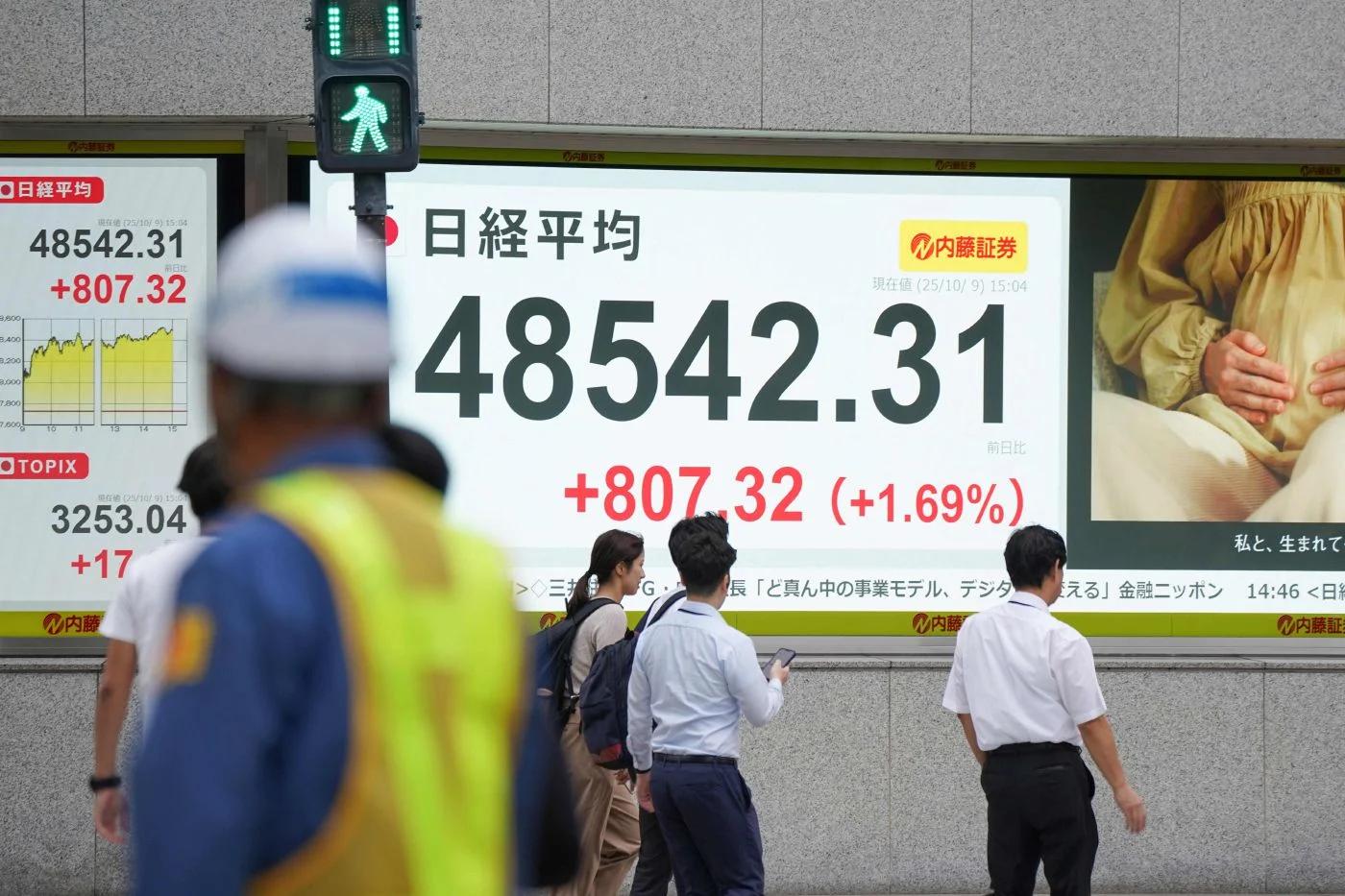Asian Stocks Slip Amid Fresh US–China Trade Tensions; Markets Remain Volatile
Author
NEPSE TRADING

Kathmandu — Asian stock markets opened on a volatile note Monday as renewed tensions in the U.S.–China trade war rattled investor confidence. Markets were already trading at stretched valuations, and the latest flare-up in rhetoric triggered a risk-off mood across the region. However, sentiment later steadied slightly as Wall Street futures bounced back.
Trading was thin due to public holidays in Japan and the United States, while political uncertainty continued to cloud both Japanese and European assets. U.S. President Donald Trump, who recently threatened to impose 100% tariffs on Chinese goods starting November 1, sounded more conciliatory over the weekend, saying that “everything will be fine” and that the U.S. did not want to “hurt” China.
Meanwhile, Beijing defended its export restrictions on rare earth elements as a justified response to U.S. aggression but refrained from announcing new tariffs.
Goldman Sachs Chief Economist Jan Hatzius wrote in a note that the “most likely outcome” would be an extension of the current tariff pause beyond November 10, along with “limited concessions” from both sides. However, he also warned that recent policy moves suggested “a wider range of outcomes,” including the potential for temporary export restrictions or higher tariffs.
Japanese and Korean Markets Decline
Japanese markets faced their own challenges, as political uncertainty deepened following doubts over LDP leader Sanae Takaichi’s possible ascension to prime minister. This uncertainty drove a sharp rebound in the yen and triggered a 5% drop in Nikkei futures on Friday.
Although the Nikkei Index was closed on Monday for a holiday, futures rose 1.3% to 46,690, still well below Friday’s cash close of 48,088.
In South Korea, the KOSPI fell 2.1%, while Australia’s ASX 200 dropped 0.5%. The MSCI Asia-Pacific Index (excluding Japan) declined 0.6%, highlighting the region’s fragile sentiment.
Wall Street Futures Rebound as Earnings Season Begins
U.S. markets showed signs of stabilization as S&P 500 futures gained 1.1% and Nasdaq futures rose 1.6%. Analysts said investors were cautiously optimistic ahead of a busy earnings week, with major U.S. banks — including JPMorgan, Goldman Sachs, Wells Fargo, and Citigroup — set to report results.
According to LSEG IBES, S&P 500 companies are expected to post an 8.8% increase in third-quarter earnings compared to last year. Analysts, however, noted that strong results will be crucial to justify the market’s high valuations.
European Politics Add to Market Uncertainty
In Europe, political risks also weighed on sentiment after French Prime Minister Sebastien Lecornu announced his new cabinet on Sunday. Roland Lescure, a close ally of President Emmanuel Macron, was reappointed as finance minister.
However, Lecornu still faces a major challenge in steering the 2026 budget through a deeply divided parliament, after his previous government lasted just 14 hours.
EUROSTOXX 50 futures rose 0.2%, DAX futures gained 0.4%, while FTSE futures remained flat.
Currencies, Bonds, and Commodities
Currency markets stabilized after Friday’s rush into safe havens. The U.S. dollar gained 0.5% to ¥151.98, rebounding from a sharp 1.2% drop on Friday. The euro was steady at $1.1607, while the Swiss franc weakened slightly to 0.8010 per dollar. The U.S. dollar index held firm at 99.015, after slipping 0.6% last week.
Bond markets were closed for the U.S. holiday, though Treasury futures dipped slightly as risk appetite improved. Investors continued to price in an almost 98% chance of a 0.25% rate cut by the Federal Reserve later this month, with another likely in December.
Fed Chair Jerome Powell is scheduled to speak Tuesday at the NABE annual meeting, where investors will be looking for clues on the economic outlook. Several other Fed officials, along with global central bankers, are attending this week’s IMF–World Bank meetings in Washington.
In commodities, gold rose 0.5% to $4,037 an ounce, briefly touching a new record high of $4,059, as investors sought safety amid political and fiscal uncertainty. Oil prices also rebounded, buoyed by hopes that the U.S. and China could reach a compromise to avoid additional tariffs.
Brent crude climbed 1% to $63.36 per barrel, while U.S. West Texas Intermediate (WTI) crude gained 1% to $59.45.



